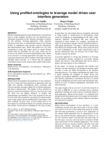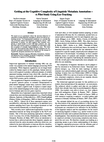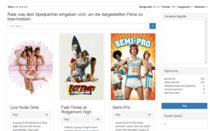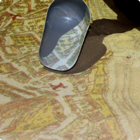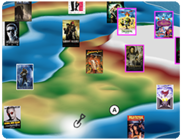User Interface Engineering and Interaction Design
We look into possibilities to optimize user interface by implementing intelligent adaption mechanisms to adjust the interface and the application contents according to the user behavior. Different quantitative and qualitative methods are applied to measure the quality of the user experience in order to optimize the interaction with the system.
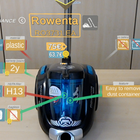
Augmented Reality
Augmented reality is the integration of digital information with the user’s environment in real time. Augmented reality technology has experienced great improvement in recent years and it has been successfully applied to industry and entertainment settings, opening a new whole dimension for user interfaces and human computer interaction.
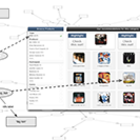
Model-based Interfaces
Model-based development and generation of UIs, employing, for instance, ontological domain models has been a longstanding field of research in the Interactive Systems group. Our work addresses both improved methods for developers as well as end-user development. One current development aims at enabling end-users to define semantic widgets that are used create personal front-ends for semantic data. Another area of interest is end-user programming of games. All of our developments follow a user-centered approach, closely intertwining technical developments with cognitive task analyses, empirical user studies and specialized analyses such as eye-tracking studies.

Tangible User Interfaces
Tangible User Interfaces (TUIs) allow the direct and seamless interaction with digital information. Interaction with TUIs is considered as reaching beyond traditional abstract mouse and keyboard interactions and is thus also called post-WIMP (“windows, icons, menus, pointer”). At the Interactive Systems group, we are interested in creating innovative new TUIs that, for instance, combine modern Augmented Reality techniques with graspable objects such as sandboxes or wine bottle shelves.
User Experience Research
User experience (UX) describes how a person perceives and responds to interaction with a system, highlighting the subjective, psychological nature of the phenomenon and focusing on the interaction process. Our research group applies different quantitative and qualitative methods to measure user experience and to identify usability issues within interactive systems. The group uses a combination of reliable, field tested questionnaires in combination with user-tests based physiological measurements (e.g. eye-tracking).
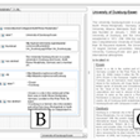
User Interface Engineering
The inclusion of end users in the development of user interfaces adds valuable feedback and insights. One of our main goals is to allow the participation of end users in the user interface engineering process. Participation can be achieved on different levels. Model-based development and generation of UIs with a particular focus on non-technical users have long been of major research interest within the group. In addition, user centric development techniques are taken into account whenever interfaces with a certain target group are designed.


